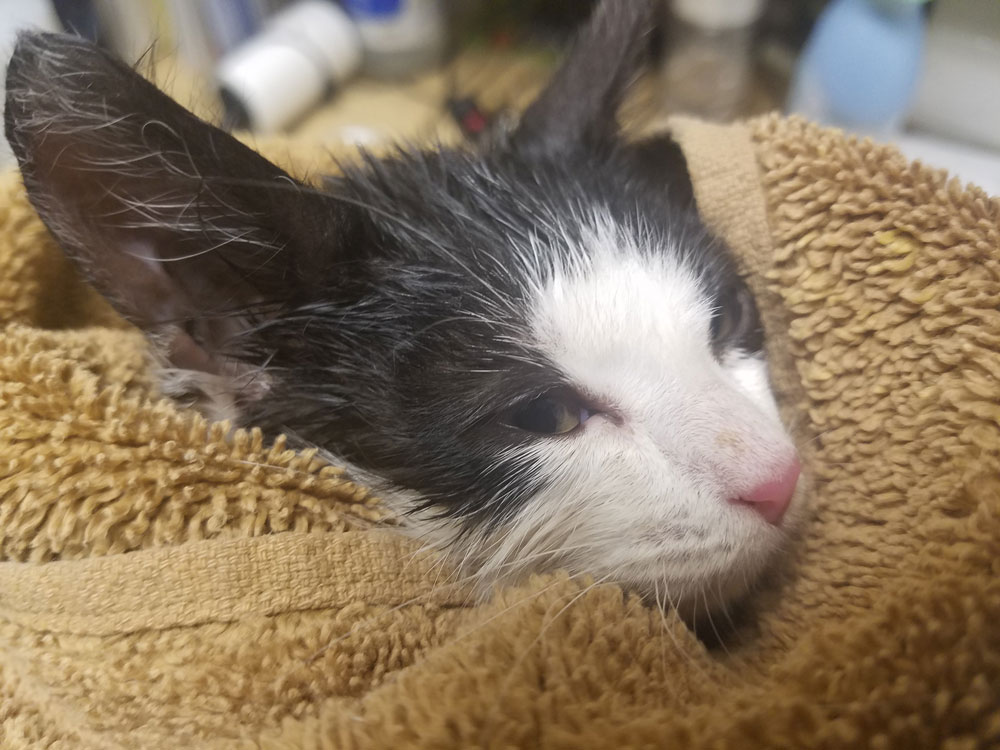When your cat’s sick …

When humans feel sick, we want a blanket and a quiet place to rest. If you don’t get those things, you feel stressed and it takes longer to heal. Cats are the same way: When kitties don’t feel well, they need special considerations to reduce their stress and help them recover.
Here are three ways to help a cat with an illness—whether it’s a short bout or a chronic condition.
1) Create a refuge
Convalescing kitties need someplace to hide and rest that’s quiet, safe, and warm. This location should be out of high-traffic areas—bedrooms are good—and contain all the things the cat needs: bed, food, water, a litter – box and any toys. Let your cat come and go freely, but if you have children or other animals, keep them out of this area so the cat can rest quietly.
If your cat doesn’t want to use the area, up the comfort level in the area by spraying a feline stress hormone spray like Feliway, or place treats, catnip or an old piece of clothing that smells like you.
2) Happy visits matter
If your cat has a medical condition that warrants frequent visits to the veterinarian, then make every effort to work with your veterinarian to make the visits less stressful. If your cat is getting poked with needles, then there is only so much you can do, but here are some basic tips:
- Leave the carrier out and open at home, so your cat can investigate and get used to it.
- Take your cat for car rides that don’t end at the hospital.
- Give the cat special treats or toys that are reserved for the hospital.
- Try to schedule the appointment for the least busy time of day at the hospital.
- Avoid loud reception areas or barking dogs by waiting with your cat in the car (temperature permitting), and asking to be called or texted when an exam room is immediately available.
Our hospitals are certified Cat-Friendly Practices, which have taken many steps to elevate care for cats by reducing the stress for the cat, caregiver, and also the entire veterinary team. However, if your cat gets really stressed out, ask us about anti-anxiety medications or whether we can do a home visit.
3) Avoid your own caregiver burnout
Caring for a sick pet can be stressful for you. In addition, your sick cat may pick up on your stress, which is not healthy for your cat or you.
If your kitty needs ongoing care, it’s even more important to care of yourself. You know how flight attendants ask you to put the oxygen mask on yourself before you assist others?
If you’re feeling stressed taking care of your cat, talk to someone about it. Make time to do other things you enjoy, try not to stress about your cat, breathe, and get plenty of rest.
For more on the topic, check out https://indoorpet.osu.edu/cats/ feline-life-stressors
Source: DVM360. Sarah Wooten, DVM; Ohio State University College of Veterinary Medicine
- Behavior (11)
- Caring for your pet (263)
- cat (4)
- Community Events (19)
- dog (6)
- From Our Clients (15)
- Happy Tails (8)
- News (418)
- Press (53)
- Products (2)
- Questions (4)
- Recalls (1)
- Special Offers (5)
- Tips & Advice (231)
- Uncategorized (19)
- Veterinary Services (48)
